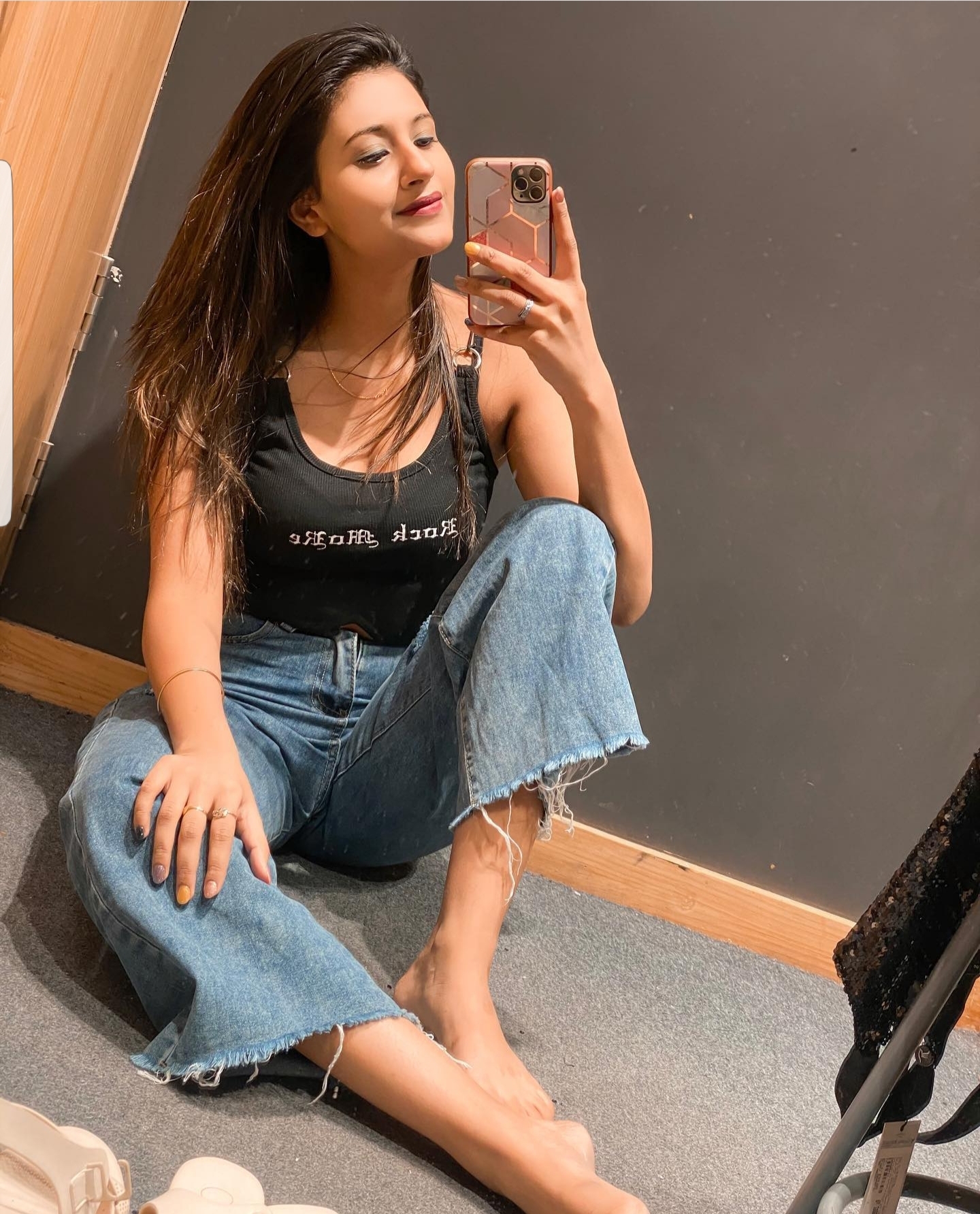Let’s be real, folks. The internet moves fast, and sometimes, stories pop up that catch everyone’s attention. One such tale is the viral sensation surrounding Anjali Arora and her infamous MMS video. Now, before we dive deep into this topic, let me set the stage for you. This isn’t just another clickbait story; it’s a narrative filled with twists, turns, and lessons learned along the way. So, buckle up because we’re about to take a ride through the world of viral content and its impact on real people.
When we talk about Anjali Arora, we’re not just discussing a random name floating around the internet. She’s become a symbol of how quickly personal moments can spiral into global phenomena. The internet, as we all know, doesn’t forget. And while this story might seem like another example of viral chaos, there’s so much more beneath the surface. It’s about privacy, consent, and the power of digital media in shaping lives.
Here’s the deal: viral content isn’t always fun or harmless. In fact, it can have lasting effects on individuals and their reputations. Anjali Arora’s story highlights the darker side of internet fame, where privacy is often sacrificed at the altar of clicks and shares. But don’t worry, we’ll break it all down for you, piece by piece, so you can understand what really happened and why it matters.
- Management Of Raspberry Pis Remotely With Remote Iot Management Platfo
- Unlocking The Power Of Remoteiot Behind Router With Raspberry Pi
Who Is Anjali Arora? A Quick Bio
Before we get into the nitty-gritty of the viral MMS video, let’s talk about the person behind the headlines. Anjali Arora isn’t just another internet personality. She’s a regular individual who, like many of us, had her life turned upside down by the power of the internet. Here’s a quick rundown of who she is:
Name: Anjali Arora
Origin: India
- Gorecenter The Ultimate Guide To Understanding And Exploring The Gorecenter
- Securely Connect Remote Iot Vpc Raspberry Pi Free Download Windows
Claim to Fame: Viral MMS video that sparked widespread discussions
Occupation: While details about her professional life are scarce, her story has thrust her into the spotlight, whether she wanted it or not.
Biographical Details
| Full Name | Anjali Arora |
|---|---|
| Date of Birth | Not publicly disclosed |
| Place of Birth | India |
| Occupation | Not disclosed, but assumed to be in a non-public-facing role |
| Known For | Her involvement in a viral MMS video |
Understanding the Viral MMS Video Phenomenon
Alright, let’s talk about the elephant in the room – the MMS video. Now, here’s the thing: viral content isn’t always something people want to share willingly. In Anjali’s case, the video in question was a private moment that somehow made its way onto the internet. And once it hit the web, it spread like wildfire.
But why does this happen? Well, it’s all about human curiosity. People love to click on things that seem scandalous, controversial, or taboo. The internet is a place where everyone’s looking for the next big thing, and unfortunately, sometimes that “thing” is someone else’s private life.
Let’s break it down: the MMS video wasn’t just a random upload. It was a private clip that somehow leaked, and once it did, it became a sensation. People shared it, talked about it, and before you knew it, Anjali’s name was everywhere. But here’s the kicker – did she ask for any of this? Nope. And that’s the real issue at hand.
The Impact of Viral Content on Individuals
Now, let’s shift gears and talk about the bigger picture. When something goes viral, especially if it’s personal, the effects can be devastating. For Anjali, this meant dealing with the aftermath of a private moment becoming public property. It’s not easy, and it’s not something anyone should have to go through.
Here’s what happens when content like this spreads:
- Privacy becomes a thing of the past
- People start making assumptions without knowing the full story
- Reputation is tarnished, sometimes irreparably
- Emotional and psychological distress sets in
And let’s not forget – the internet never forgets. Once something is out there, it’s nearly impossible to erase. That’s why cases like Anjali’s highlight the importance of digital privacy and consent. It’s not just about the person in the video; it’s about everyone involved and how their lives are affected.
How Viral Content Shapes Public Perception
Here’s the deal: when something goes viral, people form opinions based on incomplete information. In Anjali’s case, the video became a talking point without much context. People judged her, shared the clip, and spread the story without considering the human being behind it all.
This phenomenon is a double-edged sword. On one hand, it shows how powerful the internet can be in spreading information. On the other hand, it demonstrates the dangers of jumping to conclusions without understanding the full story. It’s a lesson we should all take to heart – not everything is as it seems, and we need to be more mindful of how we consume and share content.
Legal Implications of Viral Content
Now, let’s talk about the legal side of things. When a private video becomes public, there are consequences. In many countries, sharing private content without consent is illegal. And in Anjali’s case, the legal system played a role in addressing the issue.
Here’s what you need to know:
- Sharing private content without permission is a violation of privacy laws
- Legal action can be taken against those who distribute such content
- Platforms hosting the content can also face legal repercussions
But here’s the catch – enforcement can be tricky. The internet is vast, and tracking down every instance of a leaked video is nearly impossible. That’s why prevention is key. Educating people about the importance of consent and privacy is crucial in stopping these kinds of incidents from happening in the first place.
Steps to Protect Yourself Online
So, how can you protect yourself from something like this happening to you? Here are a few tips:
- Be cautious about what you share online
- Use strong privacy settings on your social media accounts
- Communicate openly with those you trust about what’s okay to share
- Know your legal rights and how to report violations
It’s all about being proactive and mindful of your digital footprint. The internet is a powerful tool, but it’s also a place where things can go wrong in a heartbeat.
The Role of Social Media Platforms
Social media platforms play a huge role in how viral content spreads. When something like the Anjali Arora MMS video hits the web, these platforms become ground zero for sharing and discussion. But are they doing enough to protect users?
Here’s the reality: while platforms like Facebook, Twitter, and Instagram have policies against sharing private content without consent, enforcement can be inconsistent. And let’s be honest – once something goes viral, it’s already too late. That’s why users need to be vigilant about what they share and how they interact with content online.
What Platforms Can Do Better
There are several steps platforms can take to improve:
- Enhance content moderation to quickly remove illegal or harmful content
- Provide clearer guidelines on what constitutes a violation of privacy
- Offer better tools for users to report and address privacy concerns
Ultimately, it’s a shared responsibility. Platforms need to do their part, but users also need to be informed and proactive about protecting their privacy.
Lessons Learned from Anjali Arora’s Story
So, what can we take away from all of this? Anjali Arora’s story is a powerful reminder of the importance of privacy, consent, and digital responsibility. It’s not just about the individual involved; it’s about how we, as a society, handle these kinds of situations.
Here are a few key lessons:
- Respect people’s privacy and consent
- Think twice before sharing or consuming content that might be harmful
- Advocate for stronger privacy laws and better platform practices
At the end of the day, it’s about being kind and mindful in our digital interactions. The internet is a powerful tool, but it’s also a place where real people’s lives can be impacted in ways they never imagined.
The Future of Digital Privacy
Looking ahead, it’s clear that digital privacy will continue to be a major issue. As technology evolves, so do the ways in which our personal information can be shared and exploited. That’s why it’s more important than ever to stay informed and take steps to protect ourselves online.
But it’s not just about individual action. Governments, organizations, and platforms all have a role to play in ensuring that privacy is respected and protected. It’s a collective effort, and one that requires constant vigilance and adaptation.
Conclusion: What’s Next?
As we wrap up this deep dive into Anjali Arora’s story, it’s important to reflect on what we’ve learned. Viral content isn’t just entertainment; it’s a reflection of how we interact with each other in the digital age. And while stories like Anjali’s can be shocking, they also serve as a wake-up call for all of us to be more mindful and respectful in our online behavior.
So, what can you do? Start by being more conscious of what you share and consume online. Advocate for stronger privacy protections and hold platforms accountable for their actions. And most importantly, remember that behind every viral story is a real person with feelings and a life that’s been impacted in ways we can’t always see.
And hey, if you’ve got thoughts or questions, drop a comment below. Let’s keep the conversation going and work together to make the internet a safer, more respectful place for everyone.
Table of Contents
- Does Barron Trump Play The Guitar Exploring The Young Trumps Musical Talent
- Securely Connect Remote Iot Vpc Raspberry Pi Aws A Comprehensive Guide


